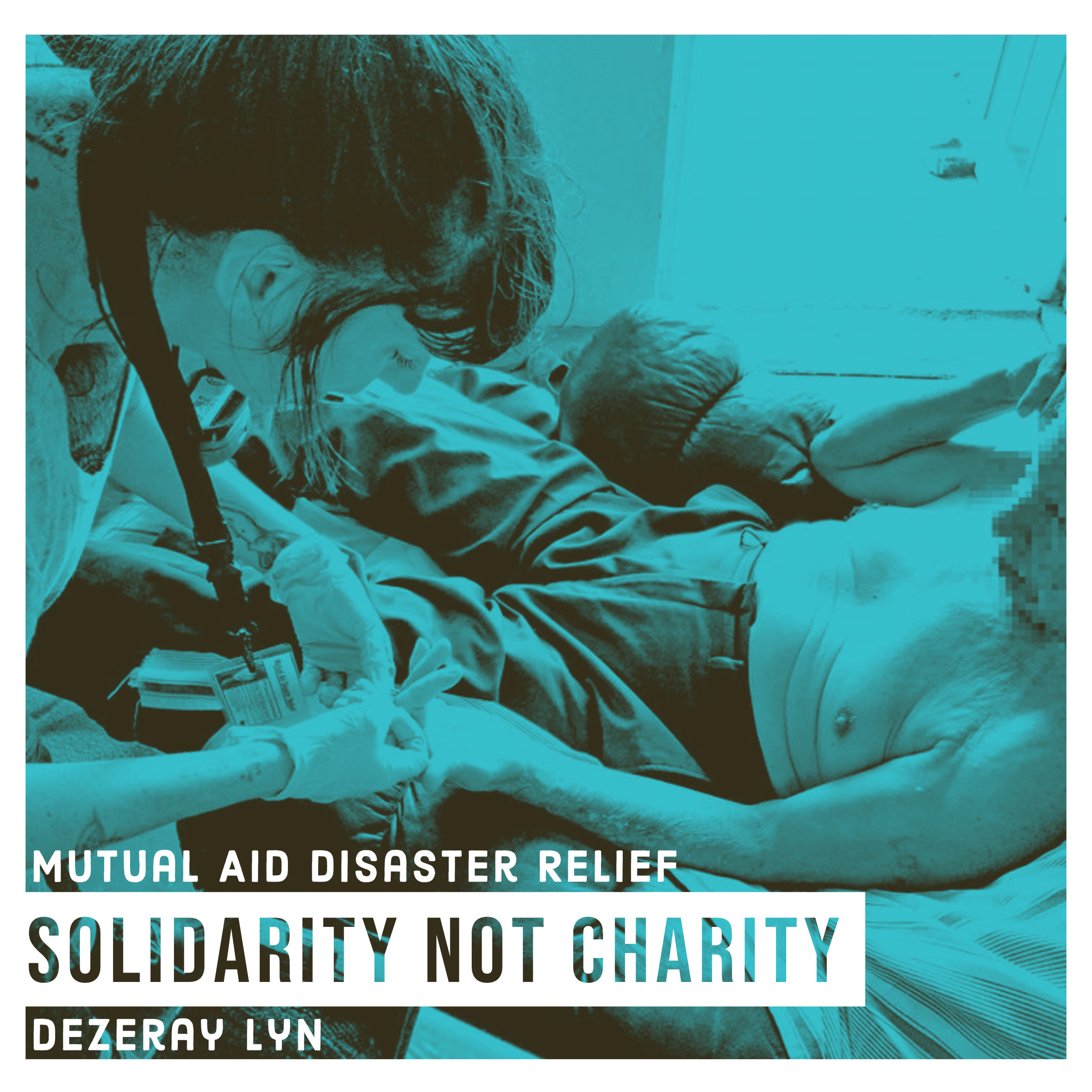#161 | Solidarity Not Charity: Mutual Aid Disaster Relief; A Factor Of Evolution w/ Dezeray Lyn
In this episode I speak with Dezeray Lyn — activist, street medic, and co-organizer of Mutual Aid Disaster Relief (MADR) — a "national network made up of many eco-activists, social justice activists, global justice activists, permaculturalists, community organizers, and others who are actively organizing around supporting disaster survivors in a spirit of mutual aid and solidarity.”☽
In this discussion with Dezeray, I ask her to discuss the fundamental differences between grassroots disaster relief efforts (as demonstrated by MADR), and those done by large-scale federal government agencies and charity organizations, in providing supplies and services to disaster-stricken communities (e.g. Puerto Rico after Hurricane Maria, and most recently the communities impacted by the devastating wildfires in California). In particular, we examine how mutual aid is "a factor of evolution" (to use the adage of Peter Kropotkin), and by acknowledging this fundamental component of the human condition, we can understand grass-roots disaster relief networks as potent examples of what human beings are capable of in the this time of accelerating climate crisis and ecological collapse. We need to take heed of successful direct actions made by networks like MADR in providing communities with a model in which to adequately anticipate, prepare for, and recover from these widespread disasters, especially as government agencies repeatedly fail to address the reality of our current predicament in any meaningful or helpful way. The socioeconomic relationships imposed under global capitalism and the State has failed to adequately provide the resources and organizational structures required to face our collective predicament. As our global climate system becomes increasingly disruptive, we must look to nonhierarchical organizational models based on mutual aid, like MADR, in demonstrating how to proceed into our uncertain future.
Mutual Aid Disaster Relief is a decentralized network, defined by the character and creativity of a multitude of communities and drawn together by the collective commitment to stand in solidarity with those impacted by disasters and turn the tide in favor of climate justice.☽ Recent events have shown that the effects of climate change are not distant fears, but current realities. From historic flooding in Louisiana to Hurricanes Matthew, Harvey, Irma, and Maria we need each other more than we ever have before. Immediately after floods and other disasters, Mutual Aid Disaster Relief listens to affected community members and responds with supplies, work crews, and amplifying the grassroots community-led initiatives that blossom following disasters.☀︎
☽Source: http://bit.ly/MADRabout
☀︎Source: http://bit.ly/MADR1
Episode Notes:
- Learn more about Mutual Aid Disaster Relief and how to support grass-roots mutual aid networks here: https://mutualaiddisasterrelief.org
- Read more about how mutual aid networks responded to the unprecedented wildfires in California this year: http://bit.ly/2GjiY2W / http://bit.ly/2ExymXS
- Follow MADR on Facebook: https://www.facebook.com/MutualAidDisasterRelief
- Follow on Twitter: https://twitter.com/MutualAidRelief
- The songs featured in this episode are “Cue 7,” “Cue 8,” and “Cue 10” by Madlib from the album The Beats (Our Vinyl Weighs A Ton Soundtrack).


